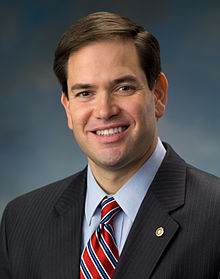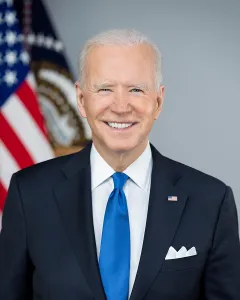The Trump short list for vice presidential candidates is reportedly down to Ohio Senator, J.D. Vance, Florida Sen. Marco Rubio, South Carolina Sen. Tim Scott and North Dakota Gov. Doug Burgum. Rubio is a favorite for many due to his record in the Senate and his appeal to hispanic voters (where the GOP is hoping to make gains in the coming election). The problem is not Rubio or his record, but his residence.
The Twelfth Amendment contains a habitation or “favorite sons” provision: “The Electors shall meet in their respective states and vote by ballot for President and Vice-President, one of whom, at least, shall not be an inhabitant of the same state with themselves.”
The risk is that Florida’s electoral votes could be challenged in any election since both Trump and Rubio reside in the state. That is a chunk of 30 votes in a close election. In addition other states which sought to block Trump from the ballot like Colorado could try this new tack to derail his campaign.
The most obvious option is for either Trump or Rubio to move. The easiest would be for Trump to move since Rubio represents Florida. That could include either New York or New Jersey ( where his Bedminster property is located).
That option would be costly for Trump in terms of taxes. Moreover, Trump is desperately trying to get out of New York where he is effectively shackled to the defense table as his opponent, President Joe Biden, campaigns around the country.
The funny thing is that Trump has been campaigning in New York and drawing some large crowds. It would be the height of irony if Trump ends up making New York competitive with a mix of the time forced to be in the state and a change of residency.
Alternatively, Rubio could resign from the Senate and focus on running with a residence in a different state. He could also attempt a more creative approach and just change residency for the election.
Under Article I, Section 3, Clause 3:
No Person shall be a Senator who shall not have attained to the Age of thirty Years, and been nine Years a Citizen of the United States, and who shall not, when elected, be an Inhabitant of that State for which he shall be chosen.
Rubio can argue that he was “an Inhabitant” of Florida “when elected.” Given the recent controversy over the appointment of Democratic Senator Laphonza Butler, it could be hard for some Democrats to object.
Yet, there will be some who will no doubt try. In 2000, Dick Cheney was challenged by three Texas residents when he moved back to Wyoming. They failed.
Ultimately, it could also be challenged in Congress under the Electoral Count Reform Act.
Despite declaring the challenge to the Biden election was an attack on democracy, Democratic members previously challenged Republican presidents in Congress, including Jan. 6th committee head Bennie Thompson (D-Miss.) and Rep. Jamie Raskin (D-Md.)






